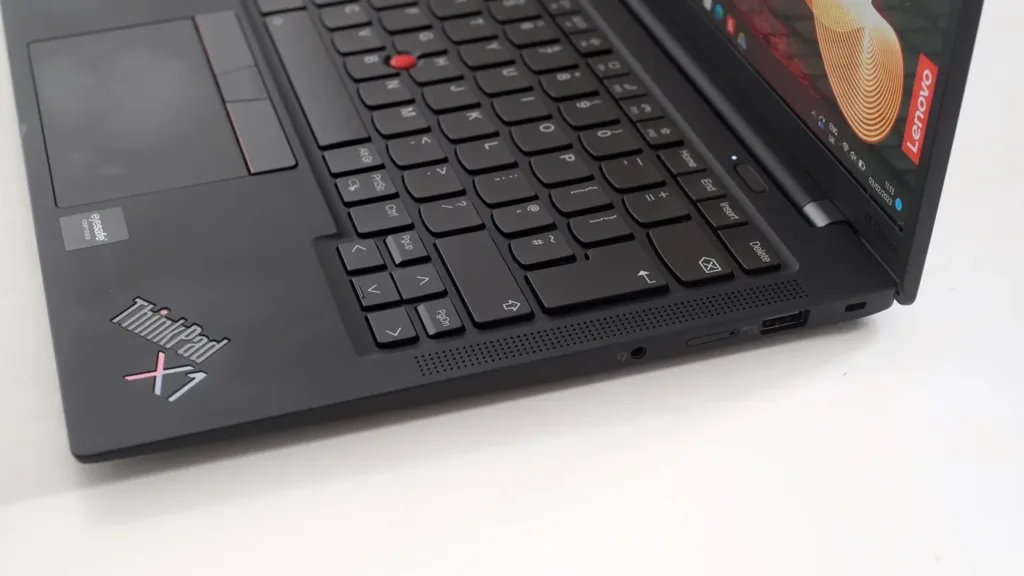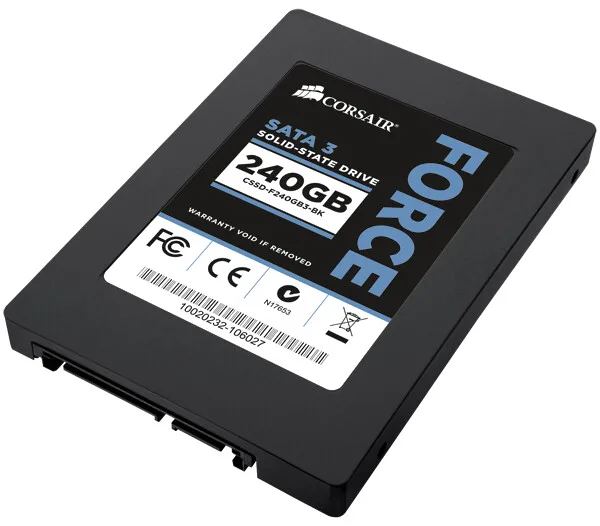This website may contain affiliate links, which means I may receive a commission if you click on a link and make a purchase. While clicking on these links won't cost you any extra money, they will help me keep this site up and running. Your support is appreciated!
In the evolving landscape of digital storage, the battle between SSD, HDD, and NVMe continues to rage on. Whether you’re a tech aficionado or a casual user, the choice of laptop storage solution can be a daunting decision. With the emergence of new technologies and the constant advancement of existing ones, it’s no wonder that the debate rages on. So, let’s delve into the world of laptop storage solutions and unpack the differences between SSD, HDD, and NVMe to help you make an informed decision.
Table of Contents
- Laptop Storage Solutions: SSD vs. HDD vs. NVMe
- Best Laptops with SSD Storage
- Best Laptops with HDD Storage
- Best Laptops with NVMe SSD Storage
- SSD vs. HDD: Which is Faster and More Reliable?
- How to Upgrade Your Laptop’s Storage Drive
- SATA vs. PCIe SSDs: What’s the Difference?
- SSD Storage Capacity: How Much Do You Need?
- How to Optimize SSD Performance and Extend Lifespan
- Hybrid Drives: Combining SSD and HDD Technology
- Questions & Answers About Laptop Storage Solutions: SSD vs HDD vs NVMe
- Closing Remarks
Laptop Storage Solutions: SSD vs. HDD vs. NVMe
When it comes to laptop storage, you have several options to choose from. Each has its own pros and cons, and it’s important to consider your needs and budget before making a decision.
SSD (Solid State Drive): SSDs are known for their speed and reliability. They use flash memory to store data, which means they have no moving parts. This makes them more durable and less likely to fail. They are also faster than HDDs, making them ideal for those who need quick access to their files. Brands like Samsung offer reliable options.
HDD (Hard Disk Drive): HDDs are the traditional storage option for laptops. They use spinning disks to store data, which can make them slower than SSDs. However, they tend to be more affordable and offer larger storage capacities, making them a good choice for those on a budget. Look for options from Western Digital.
NVMe (Non-Volatile Memory Express): NVMe is a newer storage option that offers even faster speeds than SSDs. It’s ideal for those who need the absolute best performance and are willing to pay a premium for it. Brands like Sabrent offer cutting-edge NVMe options.
| Storage Type | Pros | Cons |
|---|---|---|
| SSD | Fast, reliable, durable | Can be expensive, smaller storage capacity |
| HDD | Affordable, large storage capacity | Slower speeds, less durable |
| NVMe | Ultra-fast speeds | Expensive, may not be necessary for most users |
Ultimately, the best storage solution for your laptop will depend on your specific needs and budget. If you’re looking for a balance of speed and affordability, an SSD may be the best option for you. However, if you need the absolute fastest speeds and are willing to pay a premium for them, NVMe may be the way to go.
Best Laptops with SSD Storage

SSD, or solid-state drive, is known for its faster read/write speeds and reliability compared to traditional HDDs. In the world of laptop storage, SSDs are becoming the go-to choice for those who prioritize speed and performance. If you’re in the market for a new laptop with SSD storage, here are some top recommendations to consider:
- Apple MacBook Pro (13-inch) – The MacBook Pro is known for its sleek design and powerful performance, and with SSD storage options available, it’s a great choice for those who value both aesthetics and speed.
- Dell XPS 13 – With its InfinityEdge display and lightning-fast SSD options, the Dell XPS 13 is a top contender for anyone seeking a high-performance laptop.
- HP Spectre x360 – This convertible laptop offers SSD storage for quick boot times and responsive multitasking, perfect for users who need versatility and speed.
These laptops not only offer SSD storage for faster performance, but they also come with other top-notch features that make them stand out in the laptop market. Whether you’re a student, professional, or casual user, these laptops with SSD storage will undoubtedly enhance your computing experience.
Best Laptops with HDD Storage

When it comes to choosing a laptop, storage is a crucial factor to consider. While SSDs and NVMe drives are gaining popularity for their speed and performance, HDD storage still holds its own, especially for users with large data storage needs.
Here are a few of the best laptops with HDD storage :
1. Lenovo ThinkPad E15 Gen 2
The ThinkPad E15 Gen 2 is a reliable business laptop that offers ample HDD storage options, ranging from 500GB to 2TB. It’s a great choice for professionals who need to store a large amount of data without sacrificing performance. Plus, it comes with a variety of connectivity options and a durable build.
2. Dell Inspiron 15 5000
The Inspiron 15 5000 from Dell is a solid everyday laptop with HDD storage options of up to 1TB. It’s perfect for students or casual users who need plenty of space for multimedia files, documents, and applications. The laptop also offers a decent battery life and a vibrant display for an enjoyable user experience.
3. HP Pavilion 15
HP’s Pavilion 15 is a versatile laptop that combines SSD and HDD storage for a balanced performance. With options for up to 512GB SSD and 1TB HDD, it provides the best of both worlds – fast boot times and ample storage capacity. This makes it an ideal choice for multimedia creators and multitaskers.
These laptops offer a good balance of performance, storage capacity, and affordability, making them ideal for users who require ample storage space for their files and applications.
Pros and Cons of HDD storage
While HDD storage is known for its affordability and larger storage capacities, it also comes with certain limitations. Some of the pros and cons of HDD storage include:
Pros:
- Affordable price point
- Larger storage capacities
- Suitable for storing large files and applications
Cons:
- Slower read and write speeds compared to SSD and NVMe
- More susceptible to physical damage due to moving parts
- Heavier and bulkier compared to SSD and NVMe storage options
Ultimately, the best storage option for your laptop will depend on your specific needs and budget. While HDD storage may not offer the same performance as SSD or NVMe, it is still a practical choice for users who require larger storage capacities without breaking the bank.
Best Laptops with NVMe SSD Storage
When it comes to laptop storage solutions, the debate between SSD vs HDD vs NVMe is a hot topic. NVMe SSD storage has become increasingly popular for its lightning-fast performance and reliability.
If you’re in the market for a new laptop with NVMe SSD storage, here are some top recommendations to consider:
1. Dell XPS 13
The Dell XPS 13 is a sleek and powerful laptop that comes with NVMe SSD storage options. With its stunning InfinityEdge display and impressive performance, the XPS 13 is a top choice for both work and play.
2. MacBook Pro
Apple’s MacBook Pro lineup also offers NVMe SSD storage, delivering blazing-fast read and write speeds for a seamless user experience. Whether you’re a creative professional or a power user, the MacBook Pro is a solid choice for performance-driven tasks.
3. HP Spectre x360
The HP Spectre x360 is another excellent option for NVMe SSD storage. With its convertible design and high-end specs, the Spectre x360 is perfect for on-the-go professionals and multimedia enthusiasts.
4. Lenovo ThinkPad X1 Carbon
Lenovo’s ThinkPad X1 Carbon is a business-class laptop that offers NVMe SSD storage for fast data access and transfer speeds. Its durable build and top-notch performance make it a reliable choice for professionals on the move.
When it comes to choosing a laptop with NVMe SSD storage, these top recommendations offer the perfect combination of performance, reliability, and speed. Whether you’re a gamer, creative professional, or everyday user, NVMe SSD storage provides the best storage solution for your laptop needs.
SSD vs. HDD: Which is Faster and More Reliable?
When it comes to laptop storage solutions, one of the biggest decisions you’ll need to make is choosing between SSD, HDD, and NVMe. Each option has its own set of pros and cons, so it’s important to understand the differences to make an informed decision that suits your needs.
SSD (Solid State Drive)
SSDs are known for their speed and reliability. They use flash memory to store data, which allows for much faster read and write speeds compared to traditional HDDs. SSDs also have no moving parts, making them more durable and less prone to failure.
HDD (Hard Disk Drive)
HDDs store data on spinning magnetic disks, which can result in slower read and write speeds compared to SSDs. However, HDDs typically offer larger storage capacities at a lower cost, making them a good option for users who need a lot of storage space without breaking the bank.
NVMe (Non-Volatile Memory Express)
NVMe is a newer storage technology that offers even faster read and write speeds than traditional SSDs, thanks to its direct connection to the CPU. NVMe drives are typically more expensive than SSDs, but they’re perfect for users who need the absolute fastest storage solution available on the market.
At the end of the day, the choice between SSD, HDD, and NVMe comes down to your specific needs and budget. If you value speed and reliability, an SSD or NVMe drive may be the best option for you. If you need a large amount of storage space at a lower cost, an HDD might be the way to go.
How to Upgrade Your Laptop’s Storage Drive
When it comes to upgrading your laptop’s storage drive, you have a few options to choose from. The most common types of storage drives for laptops are Solid State Drives (SSD), Hard Disk Drives (HDD), and NVMe drives. Each type of drive has its own advantages and disadvantages, so it’s important to consider your needs and budget before making a decision.
SSD vs HDD vs NVMe
SSD’s are known for their fast read and write speeds, making them perfect for those who need quick access to their data. On the other hand, HDD’s are more affordable and offer larger storage capacities, making them a great option for those with limited budgets. NVMe drives are the latest and fastest storage option, but they tend to be more expensive than SSD’s and HDD’s. When comparing SSD vs HDD vs NVMe, it’s important to consider factors such as speed, capacity, and price.
Laptop Storage Comparison
Before making a decision on which type of storage drive to upgrade to, it’s important to consider the differences between SSD, HDD, and NVMe drives. Here’s a quick comparison of the three:
| SSD | HDD | NVMe |
| Fast read and write speeds | Larger storage capacities | Even faster than SSD |
| More expensive | More affordable | Expensive |
When it comes to choosing a storage drive for your laptop, it ultimately depends on your specific needs and budget. If speed is your top priority and you’re willing to pay a bit more, an SSD or NVMe drive might be the best option for you. However, if you’re on a tight budget and need a large amount of storage, an HDD might be the better choice. Regardless of which type of drive you choose, upgrading your laptop’s storage drive can greatly improve its performance and storage capabilities.
SATA vs. PCIe SSDs: What’s the Difference?
When it comes to laptop storage solutions, the choice between SSDs and HDDs is a common dilemma. However, the rise of NVMe SSDs has added another layer of complexity to the decision-making process. In this section, we’ll explore the differences between SATA and PCIe SSDs, shedding light on their respective advantages and disadvantages compared to traditional HDDs and NVMe SSDs.
So, what sets SATA and PCIe SSDs apart? Let’s break it down:
SATA SSDs
– Utilize the SATA interface for data transfer
- Maximum theoretical speed of 600 MB/s
– Commonly found in older laptops and budget-friendly options
– Read/write speeds may be limited compared to PCIe SSDs
PCIe SSDs
– Utilize the PCIe interface for data transfer
– Maximum theoretical speed of up to 4000 MB/s
– Ideal for high-performance laptops and gaming rigs
- Generally more expensive than SATA SSDs, but offer significantly faster speeds
In a laptop storage comparison, NVMe SSDs often emerge as the top contenders due to their lightning-fast read/write speeds and efficient use of PCIe lanes. However, it’s worth noting that the choice between SATA and PCIe SSDs ultimately depends on your specific needs and budget. If you’re a casual user with basic computing needs, a SATA SSD may suffice. On the other hand, if speed and performance are top priorities, a PCIe SSD is the way to go.
SSD Storage Capacity: How Much Do You Need?

When it comes to laptop storage solutions, the debate between SSD vs HDD vs NVMe is ongoing. Each type of storage has its own pros and cons, and the amount of storage you need will depend on your specific usage and requirements.
SSD (Solid State Drive) is known for its speed and reliability. It’s also more compact and energy efficient compared to HDD (Hard Disk Drive). On the other hand, NVMe (Non-Volatile Memory Express) takes the speed to another level, offering lightning-fast transfer rates.
In a laptop storage comparison, it’s important to consider how much storage space you actually need. Here are some factors to consider:
- Usage: Do you primarily use your laptop for web browsing and word processing, or do you need ample space for storing large files, such as videos and high-resolution images?
- Storage-intensive tasks: If you regularly work with large files or run data-heavy applications, you’ll need a higher storage capacity.
- Future-proofing: Consider how long you plan to keep the laptop and whether you anticipate needing more storage space in the future.
Ultimately, the right choice between SSD vs HDD vs NVMe’ depends on your specific needs. For most users, a solid-state drive with a capacity of 256GB to 512GB is sufficient for everyday tasks, with the option to expand storage with external drives or cloud services. However, if you work with large files or need fast transfer rates, an NVMe drive with a capacity of 1TB or higher may be more suitable.
How to Optimize SSD Performance and Extend Lifespan
When it comes to laptop storage solutions, SSD, HDD, and NVMe are the top contenders. While each has its own advantages and disadvantages, SSDs are becoming increasingly popular due to their speed and reliability. However, to ensure that you get the most out of your SSD and extend its lifespan, there are a few optimization tips you should follow.
Enable TRIM Support
TRIM is a feature that helps improve SSD performance by allowing the operating system to inform the SSD which blocks of data are no longer in use and can be wiped. Enabling TRIM support can help maintain the performance of your SSD over time and prevent it from slowing down.
Avoid Overfilling Your SSD
Unlike HDDs, SSDs can experience decreased performance if they are filled beyond their capacity. It’s best to keep at least 10-20% of your SSD’s capacity free to allow for proper wear leveling and garbage collection.
Update Firmware Regularly
Manufacturers often release firmware updates for SSDs to improve performance and address potential issues. It’s important to regularly check for and install these updates to ensure that your SSD is running at its best.
Properly Maintain Temperature
Excessive heat can reduce the lifespan of an SSD, so it’s important to keep it cool. Ensure that your laptop has adequate ventilation and consider investing in a laptop cooling pad to help regulate temperature.
Over-provisioning
Over-provisioning involves setting aside a portion of your SSD’s capacity to be used for background processes, which can help to improve performance and extend its lifespan. This can be done through the use of software provided by the SSD manufacturer.
Hybrid Drives: Combining SSD and HDD Technology

When it comes to laptop storage solutions, the debate between SSD vs HDD vs NVMe is ongoing. However, a new player has entered the game: hybrid drives. These innovative storage solutions combine the best of both SSD and HDD technology, offering a unique blend of speed, capacity, and affordability.
What is a Hybrid Drive?
A hybrid drive, also known as an SSHD (Solid State Hybrid Drive), is a combination of a traditional hard disk drive (HDD) and a solid-state drive (SSD). It uses the high-speed flash memory of an SSD to store frequently accessed data, while relying on the larger capacity of an HDD for less frequently accessed data.
Benefits of Hybrid Drives
- Improved boot times and overall system responsiveness
- Increased storage capacity compared to traditional SSDs
- Cost-effective solution for users who require both speed and ample storage
- Lessen the likelihood of data loss by spreading data across both drives
Should You Consider a Hybrid Drive for Your Laptop?
If you’re in the market for a laptop storage solution that offers a balance of speed, capacity, and affordability, a hybrid drive may be the perfect choice for you. Consider how you use your laptop and whether a hybrid drive’s combination of SSD and HDD technology aligns with your needs.
| Pros of Hybrid Drives | Cons of Hybrid Drives |
| – Faster boot times and application loading | – Slower than dedicated SSDs |
| - Increased storage capacity compared to SSDs | – Limited SSD performance for the most frequently accessed data |
Questions & Answers About Laptop Storage Solutions: SSD vs HDD vs NVMe
What is the main difference between HDD, SSD, and NVMe storage solutions?
HDDs, SSDs, and NVMe drives all store data, but they do so in different ways. HDDs use spinning disks and a mechanical arm to read and write data, while SSDs use flash memory and have no moving parts. NVMe, on the other hand, is a new protocol that allows for faster data transfer between the storage and the computer.
Why should I choose an SSD over an HDD for my laptop?
SSDs are significantly faster than HDDs because they have no moving parts. This means that your laptop will boot up faster, applications will launch quicker, and overall performance will be noticeably improved.
What are the benefits of NVMe storage in a laptop?
NVMe storage offers even faster data transfer speeds than traditional SSDs, making it the ideal choice for people who want the best possible performance from their laptop.
Do SSDs and NVMe drives have any disadvantages compared to HDDs?
The main drawback of SSDs and NVMe drives is that they are more expensive than HDDs, especially for larger capacities. However, the performance benefits often outweigh the higher cost.
How much storage capacity do I need for my laptop?
The amount of storage capacity you need depends on how you plan to use your laptop. If you only need to store a few basic files and applications, a smaller capacity SSD or HDD will suffice. If you need to store a lot of large files, such as videos or large games, you’ll want a larger capacity drive.
Can I upgrade the storage in my laptop?
In most cases, you can upgrade the storage in your laptop. However, some laptops have limited upgrade options, so it’s important to check your specific model before making a purchase.
Are there any compatibility issues I should be aware of when choosing a storage solution for my laptop?
When choosing a storage solution for your laptop, make sure it is compatible with your laptop’s interface (SATA, PCIe, etc.) and form factor (2.5-inch, M.2, etc.).
What are the key factors to consider when choosing a laptop storage solution?
When choosing a laptop storage solution, you should consider factors such as speed, capacity, price, and compatibility with your laptop.
How do I install a new SSD or NVMe drive in my laptop?
Installing a new SSD or NVMe drive in your laptop involves opening up the case, removing the old drive, and installing the new drive in its place. This process can vary depending on your laptop model, so it’s important to follow a guide specific to your model.
Can I use a combination of HDD and SSD/NVMe storage in my laptop?
Many laptops allow for a combination of HDD and SSD/NVMe storage, allowing you to take advantage of the speed of an SSD and the larger capacity of an HDD. It’s a good option for those who need both speed and space.
Closing Remarks
So, when it comes to choosing the right laptop storage solution, it’s important to consider your specific needs and budget. SSDs provide faster performance and durability, HDDs offer more storage capacity at a lower cost, and NVMe drives combine the best of both worlds. Whichever option you decide on, there are plenty of laptop storage solutions out there to suit your needs.
If you’re interested in learning more about the latest laptop storage options and finding the perfect device for you, be sure to check out GoodLaptops.com for expert advice and in-depth reviews.
Keep exploring the possibilities of laptop storage solutions and make the most out of your tech experience. GoodLaptops.com has got all the info you need to make an informed decision.
Remember, it’s not just about storage, it’s about finding the perfect fit for your digital lifestyle. Happy browsing!

